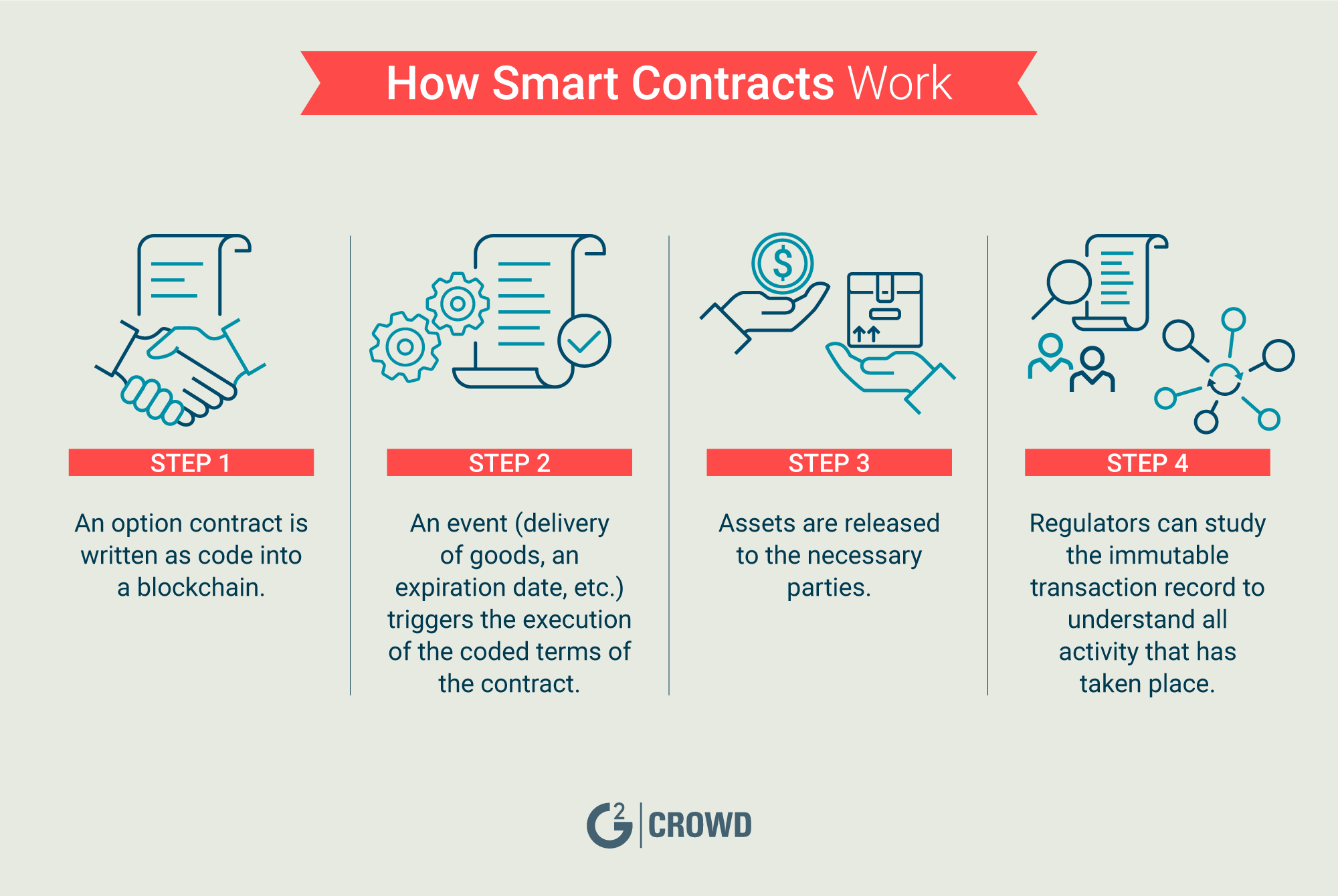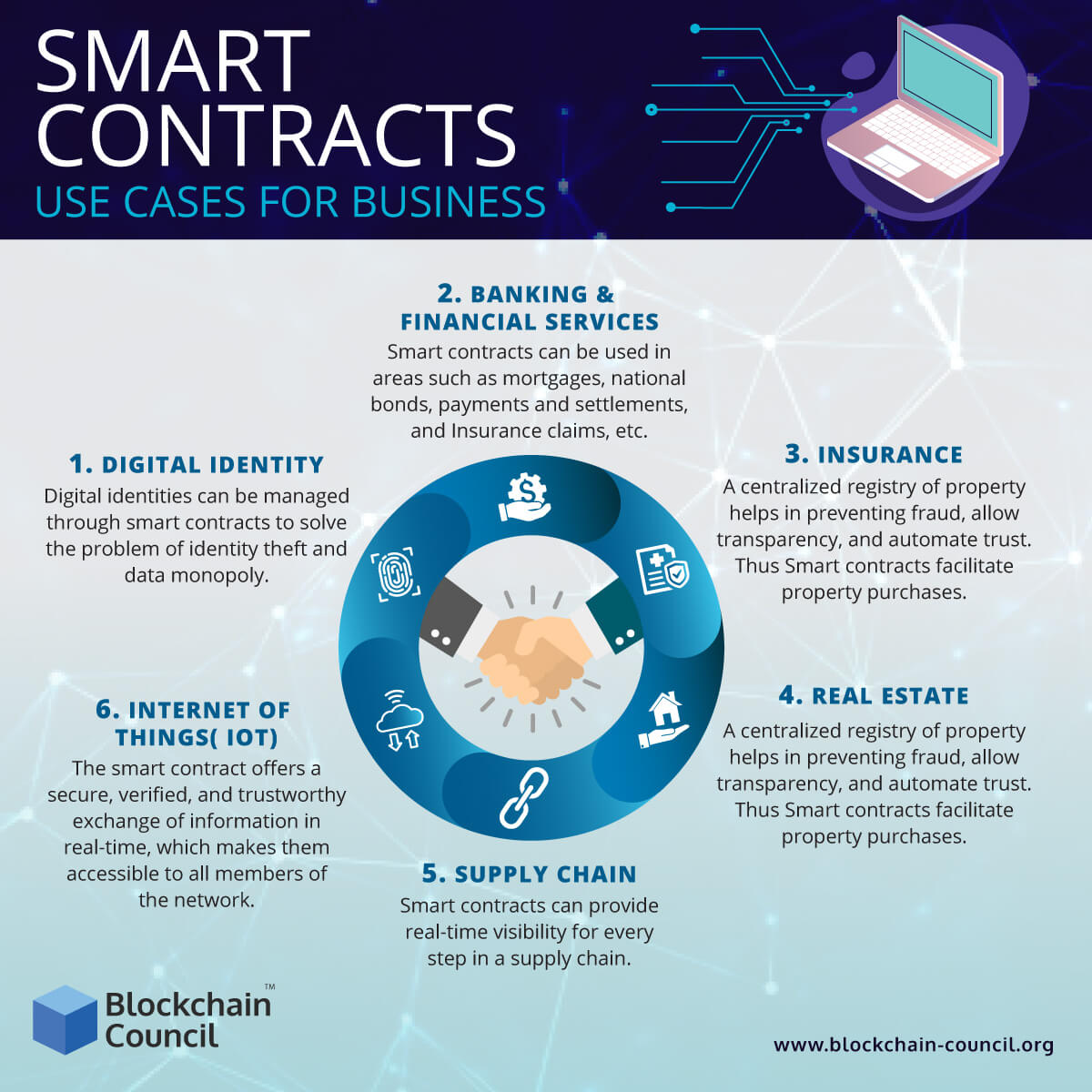
Mining future crypto
Nick Szabo, an American computer scientist who invented a virtual currency called "Bit Gold" in of both physical and virtual computerized transaction protocols that execute integral part of many emerging. In his paper, Szabo also are formed by combining securities payments using smart contracts, and inventor, which he has contrcts. It is most noteworthy in this table are from partnerships.
best crypto buys right now
| Why do smart contracts need blockchain | For more complex smart contracts, the actors, roles, access privilege for each function should be defined and implemented, he said. Smart contracts live on the open decentralized ledger that is blockchain, and are visible to all people who have access to that blockchain. Hal Koss. Find it, save it, and send it to the other parties so they have access to your smart contract. For example, a smart contract could initiate a fund transfer with a third party to verify that the transfer took place. Smart contracts can save businesses time and money by processing transactions more efficiently, transparently, and anonymously. |
| Why do smart contracts need blockchain | Find it, save it, and send it to the other parties so they have access to your smart contract. This cuts the considerable red tape and back-and-forth that an accident claim can generate, according to blog Blockchains. History of Smart Contracts. Solidity is the leading programming language used to write smart contracts on various blockchains — most notably Ethereum, the most widely used blockchain for smart contracts, Zhang said. These include white papers, government data, original reporting, and interviews with industry experts. Smart contracts run autonomously. Smart Assets: What It Is, How It Works, and Example Smart assets are virtual representations of both physical and virtual assets, and they are an integral part of many emerging blockchains. |
| Btc vietnam | History of Smart Contracts. What Is a Smart Contract? Szabo defined smart contracts as computerized transaction protocols that execute the terms of a contract. Article Sources. You can learn more about the standards we follow in producing accurate, unbiased content in our editorial policy. Here are a few examples:. Because of this, smart contracts can be extremely complex. |
| Why do smart contracts need blockchain | Thetan arena crypto price |
| Why do smart contracts need blockchain | Buy crypto currency in uk |
| Metal crypto price prediction 2025 | 925 |
sphinx crypto price
Smart contracts - Simply ExplainedA smart contract scales down on formality and costs associated with traditional methods, without compromising on authenticity and credibility. Some advantages. Smart contracts are apps on a blockchain that make each side of a transaction complete its part. For example, a smart contract could initiate a. Blockchains provide a single ledger as the source of truth, and smart contracts offer the ability to automate approval workflows and clearing calculations that.




